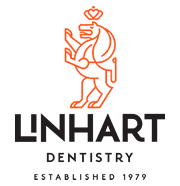
If you neglect to look after your teeth, then you’re also neglecting the health of your entire mouth. Doing so is a sure-fire way to lead yourself into pain and discomfort, bleeding gums, bad breath, and gum disease. Your mouth is teeming with bacteria – some good and some bad, and it’s vital that you keep your mouth clean just as you would your hands and any other part of your body. You should aim to brush your teeth twice a day, and ideally with a soft to medium brush so that you don’t do damage to your gums and enamel.
Learn how to properly look after your mouth and teeth with this helpful list of suggestions to follow below:
Remember To Floss
By only brushing your teeth alone, you’re not cleaning the entire surface of any tooth. You should clean in between them in order to remove the hard-to-reach build-up of food and tartar. Over time, these pieces of food can begin to putrefy and create a foul odor. This should be enough to put you off, and run for the floss immediately!
You should aim to floss your teeth each day and do it carefully so as not to put excessive pressure on your gums and cause them to bleed. Flossing, and rinsing with a fluoride mouthwash will enable to you enjoy better overall mouth health, so what are you waiting for?
See The Dentist Without Delay
Many people don’t enjoy their bi-yearly trip to the dentist, and this is mostly because they’re worried about what they might learn. You should try to unlearn this, simply because not going can have some pretty serious consequences and impact your health.
If you haven’t attended a dental practice for a while, then register with your local dentist without delay and book the earliest appointment available to you. If you’re concerned or nervous, then find out as much as you can on what to expect from teeth cleaning at the dentist as well as fillings, for example. Doing this can put your mind at ease, and actually turn up to your appointment feeling calm rather than nervous.
Protect Your Teeth
There’s more to looking after your teeth than just cleaning them thoroughly. You should protect them from injury as well. If you play sports, then it’s vital that you wear a mouthguard to shield them from potentially damaging impact. Sports such as hockey, rugby, and martial arts require that you protect your teeth from start to finish, so never play these sports without wearing the proper gear. It’s just not worth the risk and losing your teeth as a result.
Mouth and tongue piercings can cause dental trauma, and you might be better off not having them. If you do, then try to remember to remove them before you eat and before you go to sleep as well. Further protect your teeth and gums by steering clear of sugary and fizzy drinks as they can weaken the tooth’s enamel and cause serious and unattractive damage, stains, and tooth loss.
Do It Yourself (DIY) has become all the rage, especially in healthcare. WebMD has become more trusted than the local physician. And soon, you’ll be able to go to a pharmacy and get all sorts of medical and dental help. Oops, that’s already the case!
As you may have heard, Smile Direct Club, which offers at-home clear tray tooth alignment services, will be coming to hundreds of CVS pharmacies around the country. Increased access? Yes. Safe? No.

At Linhart Dentistry, we have a Board Certified Orthodontist who performs Invisalign, all done under strict supervision.
Of course, Do It Yourself often means that if something doesn’t work, you’re going to have to Fix It Yourself (FIY) too. Often, that’s because you’ll feel embarrassed to bring the issue to a real doctor for fear of them chastising or mocking you for doing something so stupid.
So there’s another raging trend, FIY after you’ve tried DIY.
We realize that there’s an almost irresistible urge to do something that seems expedient, inexpensive and innocuous, such as simply moving your teeth into alignment.
However with most medical and dental DIY schemes, the consequences of not using a DIY solution properly or delaying proper treatment effects your most valuable possession, your health.
We’re like you and love saving money. And frankly, there are some areas where DIY can work. Taking meticulous care of your teeth and gums is a DIY system that dentistry has promoted for decades. Brushing, flossing, and other treatments prescribed by your dentist and hygienist are essential for health. And they work!
But saving money on your groceries is very different than skimping on your health.
So when you see a NYC Subway ad for at-home braces, or a billboard touting the next miracle weight loss cure, it may be a good idea to visit your healthcare provider before diving in. There are many reasons that these procedures have traditionally been prescribed and administered by licensed professionals.
The barber-dentist-surgeon, for better, is a thing of the past!
The take away here is; if you’re thinking about using a dental DIY product or scheme, ask us first. And, if you have used one and it hasn’t worked or worse, it made things worse, don’t try to FIY.
We’re here and happy to help you. And, we might even recommend a DIY solution if we think it’s appropriate.
– The Linhart Dentistry Team
The “Big Game” is behind us. And, for the most part, the game was dull and viewership was down. To most of us, the best part is watching the commercials! Especially this year.
The commercials tell us a lot about the US consumer and what is “hot” in America. After all, at $5.25 Million per 30 seconds, a lot of market research goes into these ads.
This year, it was interesting to see that along with the many alcoholic beverages, perennial regulars Coke and Pepsi, 2 other “sparkling” drinks entered the market; One soft (Bubly) and one hard (Bon And Viv Spiked Seltzer). People think that “SPARKLING” is healthy. In fact, Bubly’s tag line says “JUST SMILES”.
:max_bytes(200000):fill(white)/http://dcmzfk78s4reh.cloudfront.net/1520186327779.jpg)
And with dozens of new and hip sparkling drinks on the market, more and more of us are turning to them instead of good old tap water.
And, everyone it seems is anti sugar (and corn syrup). While that’s a good thing for our nationwide obesity epidemic, it doesn’t deal with another common phenomenon, TOOTH EROSION!
The problem is that we’re seeing an increasing amount of tooth sensitivity and “erosion”. Erosion is where the tooth is actually melting away, much like the Wicked Witch of The West in the Wizard of Oz, when water is spilled on her, teeth melt away when exposed to acid.
Sparkling anything means carbonation. And, carbonation means carbonic acid. And acid, well, as you can imaging, dissolves teeth. It dissolves the enamel and the softer dentin and root surfaces. The result is weaker and more sensitive teeth.
The average pH (the measure of acidity, with 7 being neutral, >7 being basic, and <7 being acidic) of carbonated drinks is 2.5-2.8, only slightly less acidic than battery acid!

Tooth enamel starts to dissolve at pH 5.5, you do the math! Dentin and root surfaces will start melting away at just pH 6.5.
And, when you add SUGAR to the acid, guess what also happens quicker? CAVITIES!
And, when you’re taking medications that dries out your mouth, guess what happens even faster? MORE CAVITIES!
And if you think its just carbonated drinks, think again. Here’s a list of some foods and their pH.
Beer 4.0-5.0
Black Tea 4.2
Cranberry Juice: 2.5
Cranberry Sauce 2.3
Coffee 2.4-3.3
Fermented Veggies 3.9-5.1
Orange Juice 3.7
Ketchup 3.7
Pickles 2.5-3.0
Carbonated Drinks 2.5-2.8
Tomatoes 3.7-4.7
Sodas, like Coke and Pepsi are pH 2.4. And, the diet versions are NO BETTER!
These are EXTERNAL sources of acid too. If you have indigestion, pregnancy nausea or GERD (acid reflux) your stomach acid (pH 1.5-3.5) might be adding to the problem.
What are you to do???
- Minimize exposure: try NOT to sip your acidic beverage over a long time. The sooner it’s gone, the better.
- Eat Fibrous foods. Foods that have fiber and require a lot of chewing stimulate more saliva, which neutralizes (buffers) the acids. Saliva is BASIC.
- After eating anything acidic, rinse your mouth with water. Don’t swish anything bubbly around! Tap water in NYC and the area has fluoride, which helps strengthen Enamel.
- Don’t brush within 30 minutes of eating anything acidic (almost anything). That just allows the bristles to work the acid into the tooth material faster, accelerating the erosion. Also, NEVER SCRUB with a toothbrush, your teeth are NOT the dishes!
- Drinking acidic beverages through a straw helps protect teeth a bit, but not back teeth.
- Chew sugarless gum with either Xylitol or Erithritol. These natural alcohol sugars are safer and actually change the bacteria makeup of the mouth. Chewing, as I mentioned above, stimulates saliva, your body’s natural defense system. Please check with us to see if chewing gum could harm your joint (TMJ) or your dental restorations.
- Fluoride helps make the teeth (especially the roots) more resistant to acids. Please ask your hygienist which form of fluoride is most appropriate for YOU.
- LINHART toothpaste has Xylitol, and Fluoride, to help keep enamel strong. Also, Theobromine, an extract of chocolate, is included to strengthen enamel.
We try to customize our dental recommendations based on your specific risks. Along with educating you, it’s how we can best help you prevent problems.
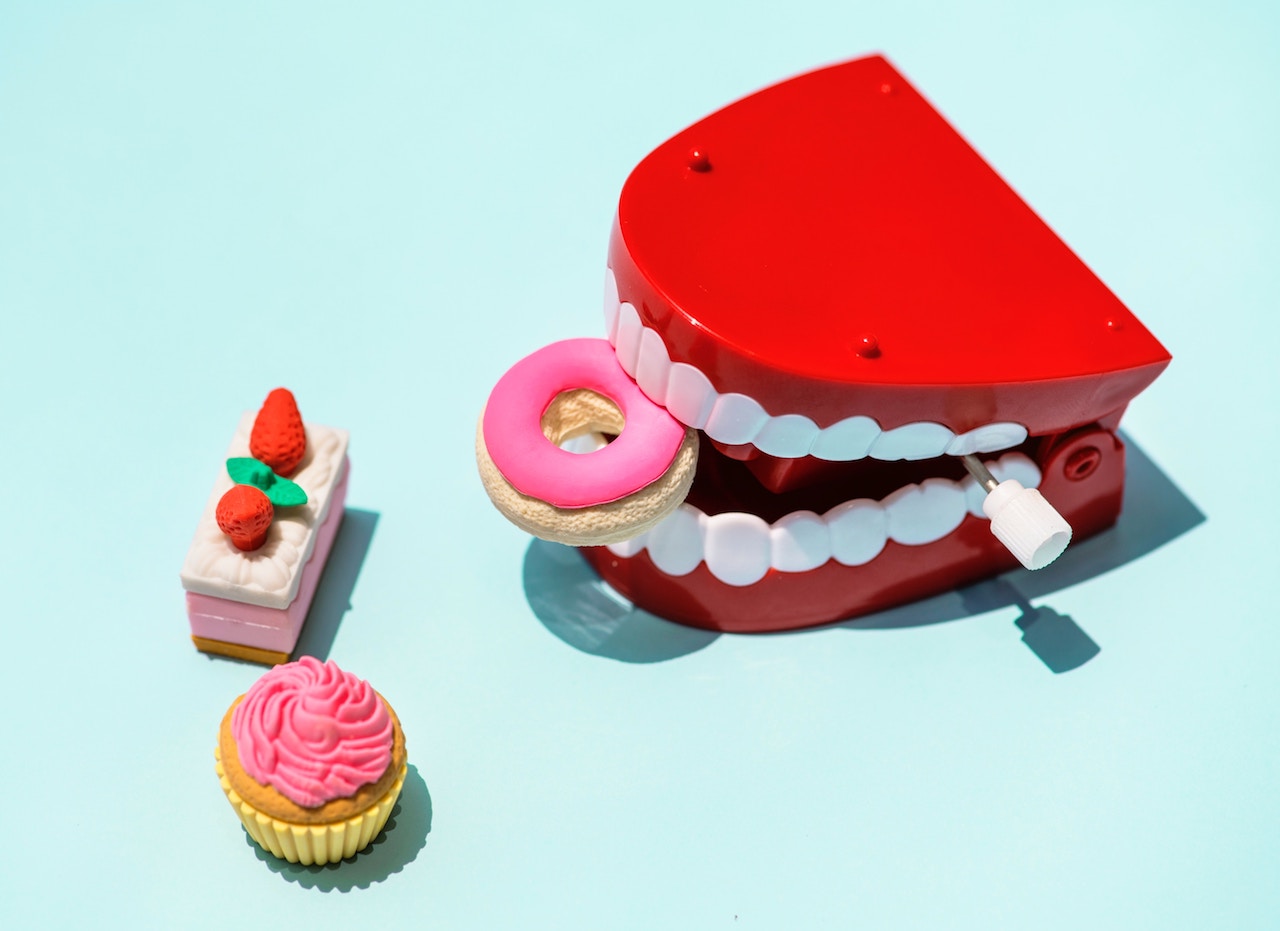
Gum recession is a dental condition that’s caused by the withdrawal of bone supporting gum tissue. This leads to irritation because it exposes the roots of the teeth.
The root is the lower 2/3 part of your tooth that’s not visible but it houses the blood and nerve supply of that region.
You won’t experience receding gums if your jaw bones are intact to hold everything in place.
So what causes receding gums? Look at some of them.
Causes Of Gum Recession
1. Overbrushing
Aggressive brushing. Rough brushing. Or overbrushing if you like. They’re all talking about the same thing. Your failing to develop an appropriate dental technique because you believe that pressure has something to do with a white smile.
Can you replace a toothpick with a needle to get little food particles off your tooth? You’d hurt yourself, right? That’s exactly what happens when you brush roughly. You injure your gums, causing bleeding gums and initiating gum recession in the process.
Aggressive flossing is also a factor.
2. Whitening Strips
And all other whitening formulas you’ve ever heard of. If you’re using them after consultations with your local dentist then that’s not a problem.
Problems usually arise when there’s an excessive use of these chemicals as they contain very corrosive ingredients that can destroy the gums.
3. Gum Disease
And a very common one is gingivitis, the inflammation of the gums. Gingivitis makes the gum swell, causing bad breath and degenerating into periodontitis if it’s not checked.
Gum recession is one of the symptoms too. And that’s because the inflammation in gum disease causes deterioration of the jaw bone.So check with the dentist if yours is a sign of a deeper infection.
4. Bruxism
So you had a rough day at work. Do you ease off by clenching and grinding your teeth at night? Maybe that’s what’s causing your receding gums. Grinding teeth weakens the structure of your jawbones.
5. Trauma
I’m sure you know what can happen to your canines if you’re constantly smacking them on every wall you find. They could get chipped or even fall off completely. So a traumatic injury to your teeth can cause receding gums.
6. Genetics
This post has been all about how your jaw bones support your teeth and why that strength is needed to prevent gum recession.
But what if it’s not all in your control. Every physical feature you’re endowed with has a thing or two to do with inheritance. The thickness or thinness of your jaw bones too.
Though very uncommon, genetic disorders like Marfan Syndrome and Parry Romberg Syndrome cause thinning and underdevelopment of the jaw bones.
And if your teeth are abnormally positioned, gum recession could set in also.
7. Poor Oral Hygiene
Think of every dental infection that could be caused by poor oral hygiene. I’m talking things like a dental abscess and periodontitis. These infections have gum recession as symptoms and that’s why poor hygiene is a factor you can’t ignore.
So you don’t confuse gum recession with any other dental infection, here are some signs you should look out for.
1. Longer Teeth
If you suspect anything, just compare the present length with maybe an old photo, or ask a roommate to check.
2. Exposed Root
Gum recession exposes the root section of your teeth, so you’d see different colors when you look in the mirror. The white or greyish look of your crown would be followed by a brown section underneath.
That’s the root that has been exposed.
3. Loosened Teeth
The jaw bones can no longer support the teeth so the teeth are severely weakened, even shaking at times.
4. Irritation
The exposed root exposes the blood vessels and nerves so you’d begin to feel sensitive to hot, cold and acidic foods. Pain signals are also transmitted.
5. Inflamed and Bleeding Gums
The margins of your gum would show patches of swelling that bleed when you brush or eat foods that need you to do a lot of chewing.
So how do you stop this?
5 Ways To Stop Receding Gums
1. Avoid Overbrushing
Pressure is not proportional to the brightness of your teeth. So focus on applying the right amount of pressure.
If that’s something too hard for you, get a toothbrush with a pressure sensor so you don’t injure your gums.
And you should consider getting a toothbrush with soft-bristles, it still gets the job done and is gentle on your teeth and gums.
Follow standard practice too. The ADA recommended brush-time is two minutes, don’t try to brush for five minutes. And you should brush twice daily also.
2. Adopt Proper Oral Hygiene Techniques
Flossing, rinsing, reducing sugary-food intake are practices that can prevent some of the consequences of poor oral hygiene.
3. Seek Help
If you’ve been involved in any traumatic attack to your teeth, see a dentist to examine the extent of damage. Check if you’d be needing any dental crowns or bridges if you have a chipped tooth.
And wear protective gear if you’re involved in contact sports or hunting.
If there’s any formula or whitening technique you want to try, consult with your dentist first so you don’t try something that’d erode your enamel.
4. Get A Mouth Guard
A mouth guard reduces the impact clenching and grinding have on your teeth so ask your dentist if this is something he’d recommend.
5. And All The Home Remedies
The anti-inflammatory properties of green tea check gum inflammation and strengthen the attachment of gums to the teeth.
Aloe Vera can reduce gum texture by restoring the right texture of gum tissue.
Coconut oil has antimicrobial agents that fight inflammation and reduce gum recession.
Lemon oil is antiseptic. It attacks the bacteria that act as causative agents to kick-start inflammation. It also has a pleasant smell that fights bad breath caused by bleeding gums.
A deficiency in vitamin C can cause bleeding gums so you should ensure you don’t have low vitamin C levels at any time.
Receding gums aren’t something you should take lightly. They’re dangerous on their own and could also appear as signs of other infections.
But now you know the signs to look out for, the causes and how you can stop this anomaly.
Dr. Levi Spear Parmly, a New Orleans dentist, invented floss in 1815. Flossing has been touted by dentists since as being the most effective way of preventing cavities and gum disease. Is it true?
Flossing is something most people think they need to do. After all, every dentist and hygienist I’ve ever met thinks flossing is imperative for good oral health. Yet, according to statistics, only 12% of Americans floss daily and 49% don’t floss at all.
The controversy about flossing was fueled by a NY Times article several years ago that discussed the matter and the fact that the US Department of Agriculture and the Department of Health and Human Services dropped the mention of flossing as part of their hygiene recommendations due to lack of “evidence based” studies.
So what’s the scoop? Should YOU floss or not?
YES, you should, but it’s not always so simple. Unfortunately, as in most healthcare matters, there’s no simple answer as to whether flossing is righ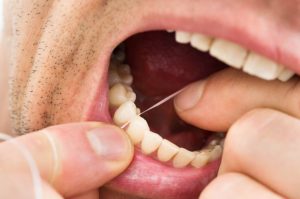 t or wrong, effective or not? It’s complex and based on your personal, unique and individual needs and risks.
t or wrong, effective or not? It’s complex and based on your personal, unique and individual needs and risks.
Every time you visit our hygienists, they evaluate the “effectiveness” of what you’ve been doing vis a vis your oral health. They ask about your medical health and any changes because we know how that can impact your mouth. They look for cavities, gum inflammation, tongue health and even cancer. They scrutinize all aspects of your mouth to make sure all is well. And, if there are areas of concern, they bring it to the attention of your dentist.
We want to help your mouth stay healthy because we know it will contribute to your overall health and wellness.
So, we might recommend that you change what you’re doing. We might recommend that you floss. We might recommend that you don’t and use some other method to clean between your teeth, like inter-dental brushes or an air flosser.
We might also recommend that you take a bacteria profile so we can see what’s happening microscopically. We might recommend that you use a different toothpaste, rinse or even an oral probiotic. We might recommend that you come to see us more frequently.
Indeed, in some cases, there are more effective systems than flossing to clean the “between the teeth” areas that can help prevent gum disease and especially, root cavities.
Your visits to the hygienists in our practice are often the most important for long term oral health. And for those who have invested a lot of time effort and money into their mouths, these maintenance visits pay off handsomely. They are indeed, the best return on investment you can make.
So floss, but we also may recommend adjunct treatments to help you clean between your teeth.
So, we’ll see you soon at your visit with one of our fantastic hygienists!
– The Linhart Dentistry Team
When you have a bad habit, it’s always difficult to drop it. To take good care of your teeth, you should be developing the right dental habits like brushing and flossing.
But what if you have a lot of the bad? Well, then you have to stop. I mean, you really don’t have a choice, do you? Just so you know what these bad habits are, here are some of them.
1. Excessive Intake Of Acidic Foods And Drinks
You may not them, but your citric fruits and juices, drinks with lots of grape and lime and fizzy drinks contain tons of organic acids that are not good for your teeth.
The acids in these beverages cause what’s known as acid erosion, where the outer enamel layer of your teeth gradually thins because of increased exposure to acid attack.
Your mouth has its own natural way of fighting enamel attack by bathing the enamel in rich nutrients present in saliva. But when the rate of breakdown exceeds that of the formation, the effect of enamel acid erosion would be very clear.
When your enamel erodes, the dentin that houses most of the nerves and blood vessels of the region is exposed, leading to tooth sensitivity and causing pain. The teeth also become discolored.
So look at those acidic drinks and go learn about more so you’d watch your consumption of these products.
2. Grinding And Clenching Teeth
If you have a lot to do during the day without enough time for yourself making you feeling stressed, it’s possible that’s what’s causing your grinding.
Teeth grinding can also be caused by anxiety, missing teeth and disorders like sleep apnea.
The amazing thing about grinding is that, it’s one habit you may not even think you’re guilty of.
Most people who grind their teeth get to know from their roommates, that’s because it’s a habit that’s developed unconsciously so you really can’t recognize it while you’re doing it.
But there are other ways to know if you grind your teeth at night. If you’re always waking up with jaw and muscular pains and headaches then you’d want to see the dentist to run a few checks.
Grinding can loosen your jaw bones causing gum recession and difficulty in opening the mouth.
You may need a mouthguard that’s made to fit your mouth and possibly stress counseling to get advice on how you can deal with stress.
If you have any fractured or cracked tooth from grinding, your dentist may speak with you about bridges, crowns and implants.
3. Overbrushing
Overbrushing is another bad habit but there are many things that constitute overbrushing.
Are you using a toothbrush with hard bristles? An abrasive toothpaste? Are you brushing more times than necessary? Like five or six times a day? Are you brushing for more minutes than necessary? And I mean anything more than 2 minutes. Then you’re overbrushing!
Overbrushing causes cavities in the neck of the tooth called abrasion cavities. Treatment of these cavities usually involves a dental filling procedure.
And it also causes gum recession. That’s just for starters though, as things can get so bad you’d get bleeding gums or other dangerous dental infections.
Your dentist may recommend a surgery to correct the recession problem.
So get a toothbrush with soft bristles, and an ADA recommended toothpaste. You’d normally see the ADA seal on such pastes.
You can also get an electric toothbrush with a pressure sensor and a timer to warn you when you’re applying too much pressure or brushing for more than the recommended time.
4. Using Non-fluoridated Toothpaste
There’s this new craze in the dental industry over non-fluoridated toothpaste caused largely by negative advertising directed at the effects of large amounts of fluoride on the body.
These advertisers are actually right, but they’re telling just a little part of the story.
Large doses of fluoride are very toxic causing problems like fluorosis where there are yellowish patches on the teeth.
But the concentration of fluoride in the toothpastes that include them are in minimal amounts that are very fit for the teeth.
Fluoride helps remineralize the enamel, improving its structure and making it more resistant to bacterial acid attack.
Tooth decay patients are even advised to introduce fluoride to their water to help boost recovery.
So go get that fluoridated toothpaste.
5. Smoking
There are just too many pamphlets and commercials on the dangers of smoking. I mean even the cigarette pack itself has a little note reading that smokers are liable to die young.
But let’s concentrate on oral health. Does smoking affect it? Of course, it does. When smoking, it passes the teeth and gums before getting into the body so that’s something to look at.
The chemicals used in the production of cigarette increase the production of bacterial plaque in your mouth which would attack your teeth and gums.
Smoking affects the proper functioning of the lungs so smokers have low levels of oxygen in their blood which means the metabolic rate would be reduced so gum injuries won’t heal as fast as they should.
That’s dangerous for someone with bleeding gums. The increased plaque on your teeth just means you’d be at more risk to get cavities than someone who doesn’t smoke.
Smokers have bad breath too. The chemicals released in smoke end up being deposited in your mouth causing bad breath.
Smoking also discolors your teeth because the enamel absorbs some of the nicotine content in smoke giving it a yellowish brown color.
And if you’ve not heard, smokers are at greater risk of suffering oral cancer than those who don’t.
So search for a plan on quitting smoking and stick to it.
6. Staying Dehydrated
Are you losing lots of water and refusing to replace it? Then that’s bad for your oral health. Dehydration causes what’s known as dry mouth.
It can be caused by drugs known as diuretics that increase the rate of urine excretion, reducing water content in the body.
It affects saliva production, and remember that saliva is the body’s natural mouthwash, it bathes the teeth in a watery nutrient-filled fluid, mineralizing the enamel and removing plaque-forming food particles.
Just drinking at least eight glasses of water daily is enough to fight your dehydration problems. If that doesn’t work, check with the dentist to ensure you’re not on any medication that’s making you dehydrated and you aren’t suffering from any condition that’s affecting you.
7. Ignoring The Symptoms
And it’s not just about oral health, you shouldn’t ignore the symptoms that have to do with your overall health too.
If there’s anything strange you’ve noticed about your teeth, it’s your body’s way of telling you that you need to get to the root causes.
But what if you don’t know the symptoms to look for?
Look at some of them:
-Bleeding Gums
Bleeding gums are a strong indicator of gingivitis, and that’s just where it all starts.
That’s because untreated gingivitis causes periodontitis which loosens the jaw bones, making some of the teeth to fall out.
Gingivitis is a clear sign that you haven’t been taking care of dental plaque on your teeth, so they’ve grown to the level where they get to inflame the gums.
Bleeding gums is also an indicator of malnutrition as the vitamins that help in the activation of clotting factors are deficient and it has also been linked to oral cancer.
-Crooked Teeth
…Or chipped and misaligned teeth. Misaligned teeth cause food particles to get stuck in little spaces between the teeth and these particles serve as food to oral bacteria.
So brushing and flossing can’t fight plaque formation and you become vulnerable to tooth decay.
Getting in contact with a dentist for a straightening procedure to be carried out would go a long way.
Other symptoms you shouldn’t also ignore are bad breath and tooth sensitivity.
Bottom line: If something’s not right with your teeth, it doesn’t pay to be silent about it.
8. Brushing Without Flossing
Brushing helps fight dental plaque and bad breath. It’s a ritual you can’t avoid if you’re interested in maintaining proper oral health. That’s all correct.
But brushing is just a part of the formula. You’d get to 85% of your inner and outer teeth with brushing, but what of the remaining 15%?
You think it doesn’t matter? The little spaces between your teeth that the toothbrush can’t get into can serve as breeding ground for dental plaque.
That’s why you need to combine brushing with flossing. Flossing gets into those gaps your toothbrush can’t.
9. Poor Diet
Dental plaque demineralizes the tooth enamel, remember? But your teeth has a way of fighting back. It’s called remineralization.
Teeth remineralize with a good diet by increasing the concentration of the very essential nutrients in saliva. Nutrients like Calcium and Vitamin D.
But if you’re on a poor diet, your body isn’t going to get enough of these nutrients so they’d be nothing to feed your saliva with.
You can get these nutrients by consuming large amounts of milk and other dairy products.
Oral health has a lot to do with the choices you make, so stop making these wrong decisions.
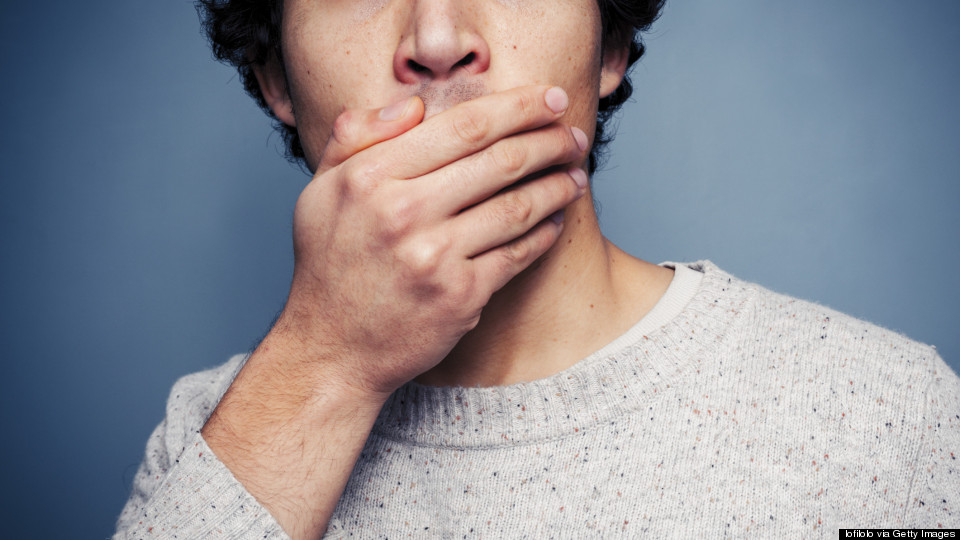
How can you tell if you have bad breath? In many cases, it’s obvious when a friend backs away during a conversation or your spouse avoids kissing you. However, if the people in your life are too nice to tell you that your breath stinks, all you need to do is floss and take a whiff of the debris you collected from between your teeth. If the smell makes you recoil, chances are you have a problem.
What’s Causing Your Bad Breath?
Also called halitosis, this condition can stem from the mouth or other parts of the body. The most common causes of foul breath include the following:
Improper Oral Care: The mouth is teeming with bacteria, and food debris and plaque that are not brushed and flossed away on a regular basis promote the growth of even more bacteria. The result is the foul stench of rotting food and bacterial overgrowth.
Diet: Garlic and onions are known to cause bad breath, but they don’t just coat the inside of the mouth with their strong odors. When they are digested and make their way into the bloodstream, their smells are emitted from the lungs when you breathe.
Tobacco Use: Cigarettes, cigars and smokeless tobacco contain numerous toxins that not only increase your risk of developing gum disease and cancer but also dry out the mouth and promote bacterial growth.
Oral Health Problems: Bad breath can be a warning sign of several oral health problems, including oral thrush, gum disease and tooth decay. Halitosis also occurs with xerostomia, a condition in which a sufficient amount of saliva is not produced to cleanse the mouth of dead cells.
Medical Problems: A host of medical issues can lead to bad breath, including respiratory infections, acid reflux disease, sinus issues, diabetes and diseases of the liver and kidneys. Some medications used to treat these and other conditions, especially chemotherapy drugs for cancer, can also lead to xerostomia and bad breath.
What Steps Can You Take to Eliminate Bad Breath?
Depending on the cause of your halitosis, methods of freshening your breath can range from merely improving your flossing technique to seeking treatment from your dentist:
1. Brush and Floss Regularly: To keep food particles and oral bacteria at bay, brush at least every morning and night , and floss at least once daily. You may want to throw an antiseptic mouthwash into the mix as well.
2. Keep Your Dental Appointments: Receiving checkups and cleanings can help prevent oral health issues that cause bad breath as well as detect periodontal disease and cavities so that they can be treated promptly.
3. Evaluate Your Diet: Garlic and onions are not the only foods that cause bad breath. Keep a log of what you eat and how it affects your breath to determine what offending foods you may want to avoid in mixed company.
4. Give up Smoking: Add bad breath to the long list of reasons why using tobacco products is a bad idea.
5. Keep Your Mouth Moist: If your halitosis stems from chronic dry mouth, drinking plenty of water and sucking on sugarless candies can help induce more saliva production.
What If Bad Breath Persists?
If self-care methods and dental treatment do not fix your problem, your dentist will recommend that you see your physician for a checkup. Your bad breath may be caused by an undiagnosed health problem or a medication that you are taking.

Most people think of oral care as visiting the dentist frequently, flossing and brushing their teeth. You might be surprised to learn, however, that what you eat can actually play a big role in the health of your teeth. Certain natural foods can strengthen the enamel of your teeth as well as the structural integrity of your teeth over time. Here are some of the foods you will want to include in your diet in order to enjoy stronger, whiter and healthier teeth in the future.
Dairy Products Like Milk, Yogurt and Cheese
You might already know that dairy products are good for you because of the calcium and protein that they offer the body. What you might not know is that the calcium found in dairy can have a big part in how healthy your teeth are. Calcium, which is found in milk, cheese, yogurt and even ice-cream, is a key player in strengthening the enamel of the teeth. When you add in how important calcium is for jaw bone strength, it is clear to see why dentists recommend dairy products to their patients.
Celery: A Natural Toothbrush
Celery has long been a dieter’s friend, but now it is also a great food to include in your diet for your dental hygiene. The high fiber content of celery acts as a type of broom on your teeth, sweeping away anything clinging to the surface of each tooth. In addition, celery takes a long time to chew, which results in extra saliva and a perfect pH balance in the chewer’s mouth.
Strawberries for Whiter Teeth
Eating a handful of strawberries can lead to some red and sticky fingers, but these sweet berries won’t have the same effect on your teeth. In fact, strawberries can actually help to whiten your teeth and keep them strong. Their Vitamin C works to keep the whole mouth healthy, and their malic acid removes tartar as you chew. Just incorporating a few strawberries into your daily diet could result in noticeably whiter teeth over time.
Leafy Green Vegetables
Doctors in every area of health would probably recommend that their patients consume leafy green vegetable as often as possible, but you might be surprised to hear your dentist say it. The reason that foods like broccoli, kale and spinach are so great for your teeth has to do with their high Vitamin K content, which can help maintain strong bones and teeth. In fact, some dentists argue that Vitamin K is just as important as calcium when it comes to healthy teeth.
Fish Rich in Vitamin D
One of the best foods for your teeth are sardines, but any type of fish will be a good choice. Sardines are packed with Vitamin D and calcium, which are both necessary for healthy teeth. Plus, their edible bones are full of fluoride to protect your teeth from cavities.
Dental hygiene goes way beyond just caring for your teeth with a toothbrush and floss. Incorporating key foods like the ones on this list can go a long way in strengthening and even whitening your teeth naturally.
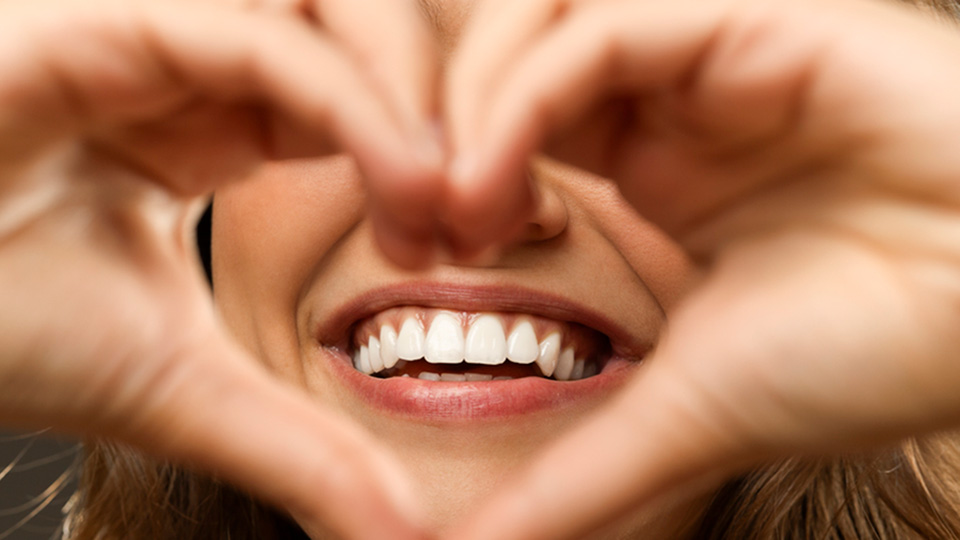
If you were to poll 100 people and ask them what their oral hygiene routine consists of, the chances are good that most people would simply mention brushing their teeth twice a day. Although brushing your teeth is obviously an important part of any dental hygiene routine, there is a lot more involved. Taking care of your teeth can go more than just give you pearly whites. It can help reduce your chance of respiratory disease, heart problems and even diabetes. Here are the key things that you should always do in order to enjoy great dental health and hygiene.
Visit the Dentist Regularly
One of the things that people often avoid in terms of dental health is visiting the dentist. The reasons for visiting your dentist are numerous, and they include getting a thorough cleaning, checking your mouth for potentially cancerous lesions and reminding you about proper procedure for brushing and flossing. In addition, dentists can point out any dental problems before they become serious issues. Most people would much rather go in for a cleaning than a cavity drilling, for example.
Brush With a Soft-Bristled Toothbrush
Everyone should make a habit of brushing their teeth at least twice each day. Although some people think that brushing with vigor and a hard-bristled toothbrush will get rid of plaque best, that is a common misconception. Choose a soft-bristled brush instead, and select a toothpaste that contains fluoride. You will want to brush for two to three minutes at a time, and you do not want to forget about your cheeks. Bacteria often lives on the inside of your cheeks, and giving them a quick brush can help improve breath.
Eat a Tooth-Healthy Diet
Oral health and hygiene do not stop when you leave the bathroom. The food that you eat throughout the day can either help or harm your mouth health, and you should try to make great choices at every meal and snack. Instead of hard candies or sodas, which feed the bacteria that causes bad breath and leads to plaque buildup, opt for fiber-rich veggies that can clean the surfaces of your teeth with every bite. Calcium, protein and Vitamin K are other key nutrients to include in your diet.
Floss Daily
If you do not floss, you may only be cleaning two-thirds of your teeth on a regular basis. Flossing can dislodge any small pieces of food between your teeth, and it also reduces bad breath and helps reduce the risk of gum disease. You want to use the floss to clean the gum line, but it should not be painful. If it feels uncomfortable, then look for thin floss that is better able to clean between teeth without any discomfort.
Along with flossing daily, brushing your teeth twice a day, eating a healthy diet and visiting the dentist regularly, you should be observant. Keep an eye out for swollen gums, lesions in the mouth or bleeding when you floss, all of which can be a sign of serious dental problems in the future.
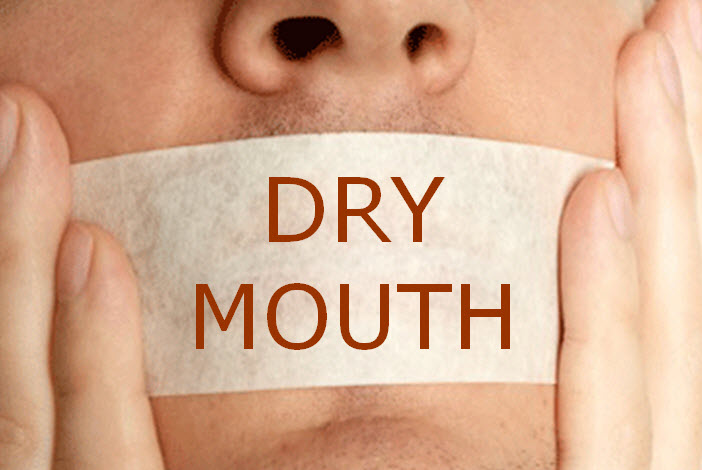
Everyone has experienced a dry mouth during stressful situations such as an oral presentation or an intense job interview. However, if your mouth continually feels like the Sahara desert, you may have xerostomia, a condition marked by a decrease in saliva production. Saliva is an essential component of good oral health because it lubricates the mouth, neutralizes acids that attack the tooth enamel and helps kill the oral bacteria that cause tooth decay and gum disease. It also contributes to your ability to taste and helps you digest food. Here are the facts about this condition that can wreak havoc on your oral health, digestive health and quality of life.
What are the Causes of Dry Mouth?
The following are the most common reasons for decreased saliva flow:
- Lifestyle: Engaging in bad habits can contribute to a dry mouth. Smoking or using other tobacco products, drinking alcohol, consuming too much caffeine and breathing through your mouth rather than your nose are all risk factors for xerostomia.
- Medical Conditions: A host of health problems can lead to a dry mouth, including diabetes, Sjogren’s syndrome, rheumatoid arthritis, hypertension, anemia and HIV. Health problems that cause dehydration, such as illnesses involving fever and diarrhea, can also leave the mouth feeling parched.
- Drink lots of water
- Avoid foods and beverages that cause dehydration, such as salt, alcohol and caffeine
- Eat sugarless hard candy
- Brush with a fluoride toothpaste for optimal protection against dental erosion and decay
- Use an over-the-counter mouth rinse or gel that is formulated to moisturize the mouth
When to Seek Professional Care for Xerostomia?
If at-home care does not alleviate your dry mouth, you should see your dentist to determine if you need further treatment, which may include a prescription medication to stimulate saliva production. If your dry mouth is caused by a health condition or one of the medications you are taking, consult with your physician to find out if your treatment plan can be altered so that you can obtain some relief from your xerostomia.
